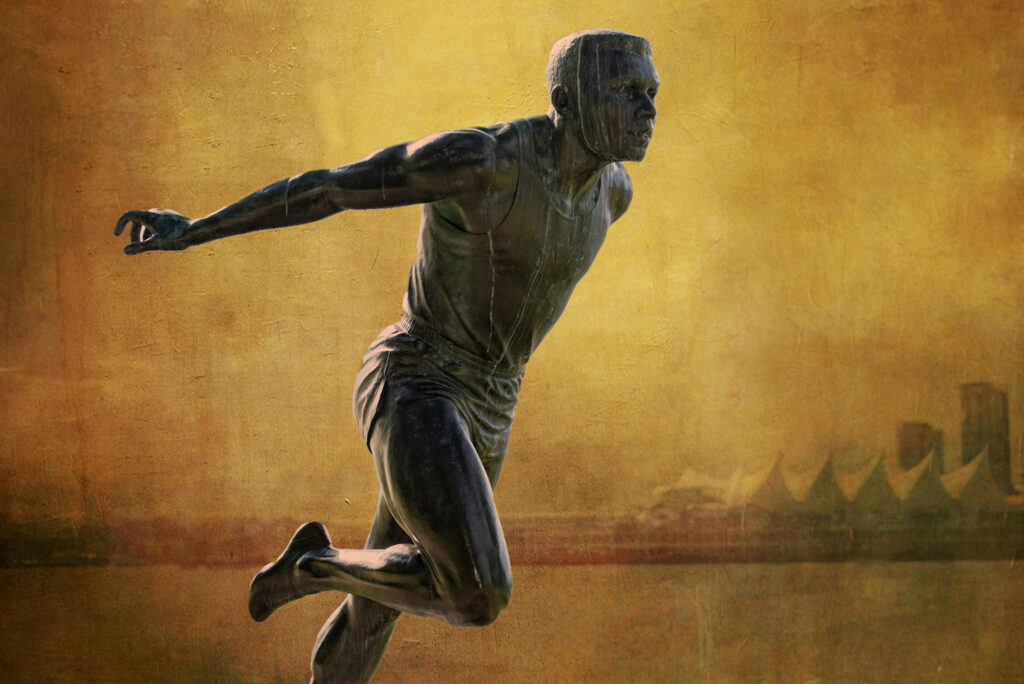So, to this day, when friend meets friend, the word of salute
Is still "Rejoice!"—his word which brought rejoicing indeed.
—from “Pheidippides,” Robert Browning
The wind erodes our cheeks like limestone, awakes us
to our run. There is more than one way to see ourselves
in the Sphinx. We all have our noses worn off – spite
wishes it had the patent on making the world line up
for museums. An ice bath makes the body Atlantis.
We know each thought cannot be beautiful.
The simplest things change without effort. The high arches
of my feet fell out of love with the rest me centuries ago, yet
I admired my wife from the stands, eighth grade, how bad
she was at distance, lapped on the track, face swollen
like red cotton. I was not in love with her, nor did I think long
on her or her last place finish until we left for university.
She’s a champion miler by then. The universe spins us
together. We run at each other’s shoulder like two clouds.
The sunset flames deep pink as lungs at mile 22,
we feel death tease as acid hit our legs. I stop counting
my steps at some moment within the moment
my brain decides breathing is instinct. No rhythmic tricks
will keep knees from abuse. The body is a savannah.
The graceful cheetah will not outlast us. Don’t be fooled
by its sprinter speed. We have a thousand names
just for the earth. Who is its artist? The Greeks asked
this same question. We loaf around until we are eaten
or stale. A life starts out as dust and water kneaded
by gravity and heat into a cosmic bread. There is too much
metamorphic, even nature partakes in artifice; it is not just us
who reimagines everything. Our love is as familiar
as the Acropolis. Nobody tells us, or everybody tells us,
monuments peak. They must be maintained. If we are to last
in this happiness, we must be okay with decline.
We cried for Boston as the winterized boat unpacked
two years after she crossed the line – her parents and I cheered
from the detonation spot. It is human to invent destruction
out of the same earthly ingredients we use to cook rice.
The heart strengthens with each interval, muscle ripped
and repaired, ripped and repaired. A runner sees art
in a slower and slower beat, in speeches sung over
the craggy top of Arthur's Seat and the cutting winds
of flat Defiance. A runner crosses off these fake battlefields.
All of us must secretly wish to let our bodies break down
slower than a rock – slower than a galaxy – that if we must
follow some pattern, our love survives like a civilization.
Like a Shakespearean sonnet, we run this marathon
to embrace inevitable suffering, to hold on to its cunning
insights into life, past that first awakening to its majesty.








